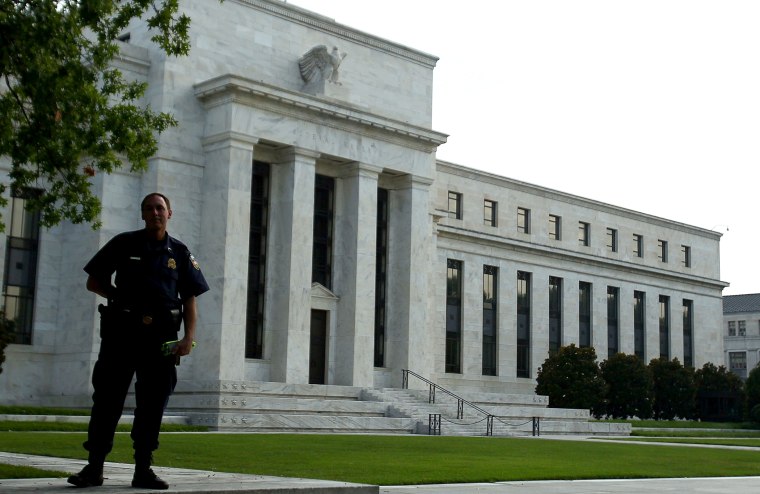About six months ago, Donald Trump endorsed the Federal Reserve's decision to keep interest rates low. "Right now I am for low interest rates, and I think we keep them low," the then-candidate argued in May.As MSNBC's Benjy Sarlin noted, Trump said the exact opposite in September, arguing that the Fed is part of some kind of conspiracy to help Democrats. He added at the time that low interest rates had created a "false economy," adding that a hike is inevitable "at some point." Trump explicitly accused Janet Yellen, the current Fed chair, of keeping rates "artificially low" to boost President Obama."I think she should be ashamed of herself," Trump said as part of his bizarre rant.In theory, then, Trump should be delighted that the "false economy" and "artificially low" rates are headed in a new direction.
In a widely expected move, the Federal Reserve raised its benchmark interest rates for the first time in a year, citing the "considerable progress the economy has made," said Fed Chair Janet Yellen on Wednesday.Fed officials unanimously agreed to raise short-term interest rates by 0.25 percentage points.... Yellen noted that Americans should prepare for further hikes, saying the committee expected to raise rates "three or more" times in 2017.
If Trump believed what he said in September, the president-elect should consider this great news. Indeed, it's not just Trump; congressional Republicans in recent years have repeatedly urged the Federal Reserve not to keep interest rates too low.And so, in light of yesterday's announcement, the GOP faces a test: did Trump and his allies mean what they said?It's possible, for example, that Trump was sincere in September, pushing for higher interest rates because he thought it would represent sound monetary policy. It's also possible that he wanted to see a rate hike in the hopes that it would rattle investors and slow economic growth ahead of the election, boosting his own odds of success. (As it turns out, we now know it didn't matter -- rates remained low, the economy remained healthy, and Americans elected Trump anyway -- but the Republican didn't know that at the time.)Remember, as recently as April, Trump said, "The best thing we have going for us is that interest rates are so low." Soon after, inexplicably, he said the exact opposite.So, what's it going to be? The Trump from the spring, who opposed a rate hike because it'd slow the economy, or the Trump from the fall, who demanded a rate hike for reasons he never actually explained?The same questions apply to congressional Republicans, by the way, who wanted higher interest rates before the election, but who may suddenly have a change of heart. Rep. Roger Williams, a member of the House Financial Services Committee, blasted Yellen's announcement yesterday, insisting it would be "burdensome" on families, adding, "The Fed is effectively making our hardships even harder."Is this the new GOP line? Push for higher interest rates when there's a Democratic president and demand lower interest rates when a Republican takes office?
